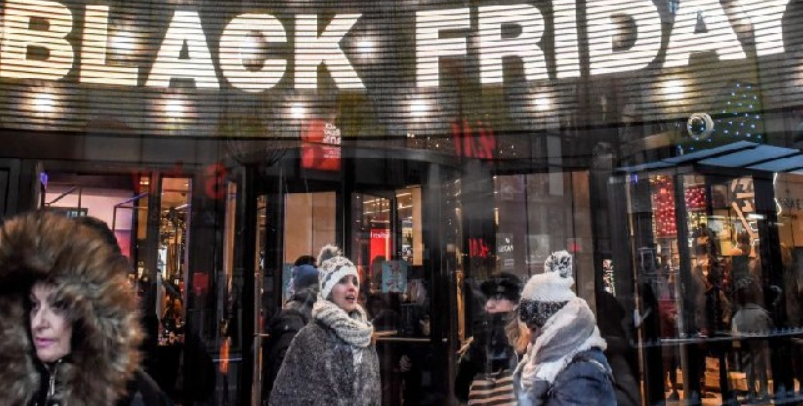"Black Friday" is the name given to the day following Thanksgiving. One of the nation's most extensive shopping and spending events occurs at this time. Forecasters make predictions about the amount of Black Friday sales each holiday season, and whether or not those predictions are realized or exceeded may affect market confidence.
Suppose customers spend much money on Black Friday after Thanksgiving, and stores report strong sales. In that case, investors can get their first indication that this Christmas shopping season will likely be profitable. This confidence can be seen in retailers' stock prices and reports of strong sales. On the other hand, many see it as a calamity if retailers fall short of expectations on Black Friday. Customers' perceived restraint in making purchases will increase economic concerns.
KEY LEARNINGS
Black Friday, the day following Thanksgiving, is when stores are ordinarily "in the black" for the year. The busiest day of the critical holiday shopping weekend is now known as that day.
The Monday after a holiday weekend is known as Cyber Monday, and it is thought that the five days from Thanksgiving to Cyber Monday's sales reflect the general public's mood.
Strong sales during this time can benefit stocks in the retail sector, particularly those of companies that report good sales.
The broader stock market and investor confidence are not always impacted by the outcomes of Black Friday, though, since market players pay attention to various economic and political developments.
Millions of Americans shop throughout the Thanksgiving holiday. 
In 2020, according to the National Retail Federation (NRF), 186.4 people made purchases between Thanksgiving and Cyber Monday, paying an average of $311.75 during the five days, a 13.9% decrease from the $361.90 spent in 2019. While the number of people who shop online solely increased by 44% to 95.7 million, more than 100 million people made their first online transactions.
Cyber Monday, the Monday following Thanksgiving, is an important day for the retail industry since it is when people go back to work and make online purchases. The five-day shopping extravaganza during Thanksgiving weekend is closed on Cyber Monday.
Black Friday Weekend and Stocks
Thanksgiving is an important day for many businesses, especially the food industry. In contrast, Black Friday and Thanksgiving are both closed, with only a tiny section of the American stock markets being open. The markets are still open throughout the world, but the importance of the day after Thanksgiving is unlikely to affect stock trading just by the occasion.
Many retailers frequently earn enough sales on Black Friday to end the year in black makes it crucial. Since many retailers see Black Friday as crucial to their company's annual performance, investors use Black Friday sales numbers as a proxy for the state of the more significant retail industry. Economists interpret a decline in Black Friday sales as a sign of slowing growth because of the Keynesian idea that consumer spending propels economic activity.
Day of Thanksgiving and Stocks
Many experts and investors believe Black Friday has any real predictive power for the fourth quarter or the markets. They claim that all it accomplishes is very fleeting gains or losses.
Notably, retail is the best-performing American industry from a week before Black Friday to a week after. From 2007 to 2017, a subgroup of S&P 500 retail companies saw a 5% return versus an average 3% return for the S&P 500 over that time. These retail stocks have had successful 10-day trading over the past ten years.
This trend is still present in the S&P 500 Retailing Industry Group, which outperformed the S&P 500 in 2018 and 2019 by 1.5% and 0.1%, respectively.
In contrast to the S&P 500's 4.1% return, the retail sector only generated a 2.2% return in 2020, bucking the trend.
Holiday Sales in 2020
The NRF reported on January 15, 2021, that retail sales for the 2020 holiday season climbed 8.3% year over year (YOY) to $789.4 billion, above its projections. "Online and other non-store sales" climbed by 23.9% to $209 billion. The growth rate for the preceding five years was 3.5% YOY, which more than doubled.
Black Friday's impact on the stock market
Analysts and investors do not believe that Black Friday impacts the sales and profitability numbers businesses report for the fourth quarter. Analysts and investors, however, believe that any gains or losses associated with Black Friday are only temporary. A 2008 Market Watch investigation by Mark Hulbert looked at the 114-year trend of stock market activity after Thanksgiving. They are comparing this to the rest of the year.
The data shows no correlation between a rise in sales on Black Friday and the Q4 results. While Black Friday and Thanksgiving might have significant short-term trading ramifications, they might not have long-term stock market effects. Therefore, the retail market's activity and sales data may not indicate how the stock market would behave over the long run.




